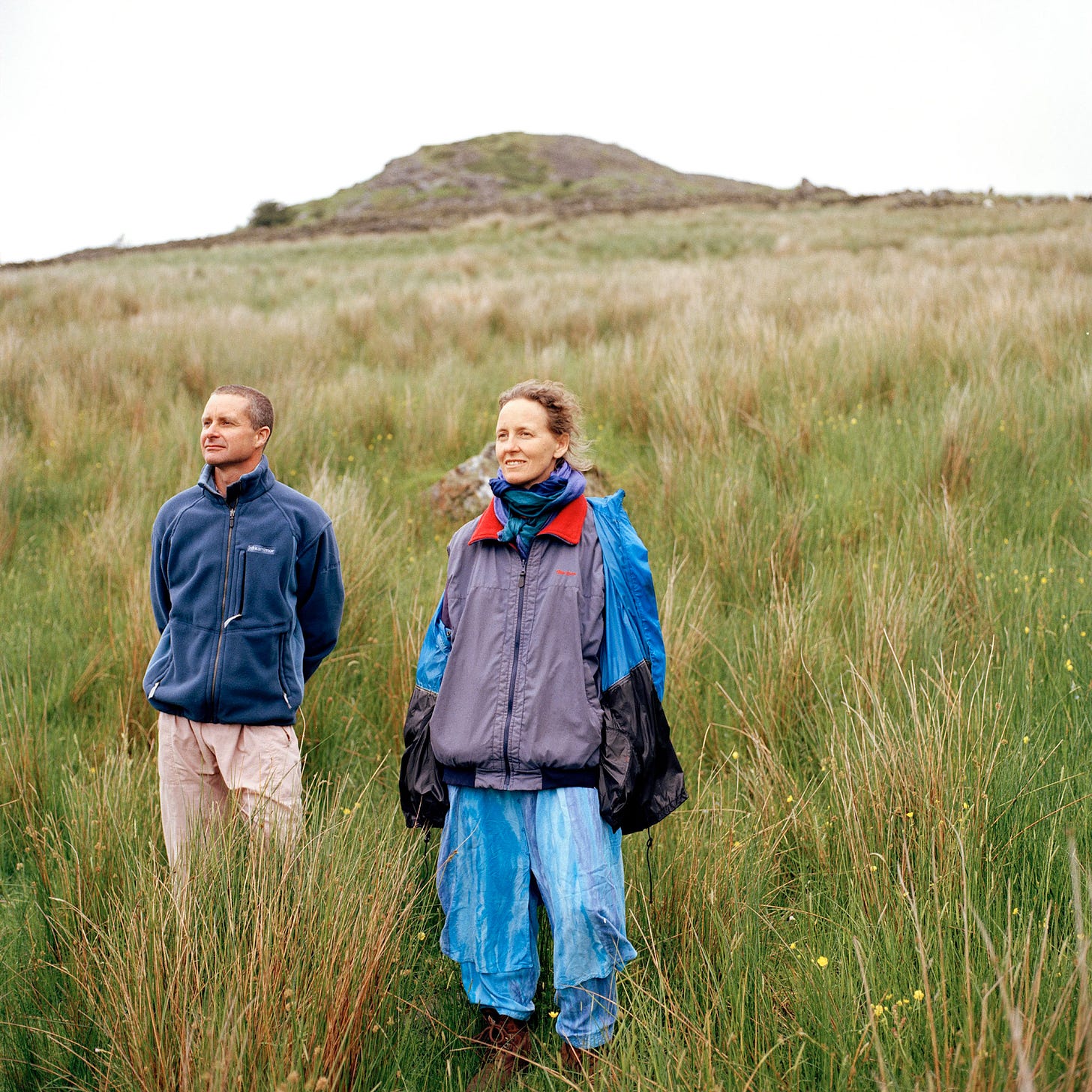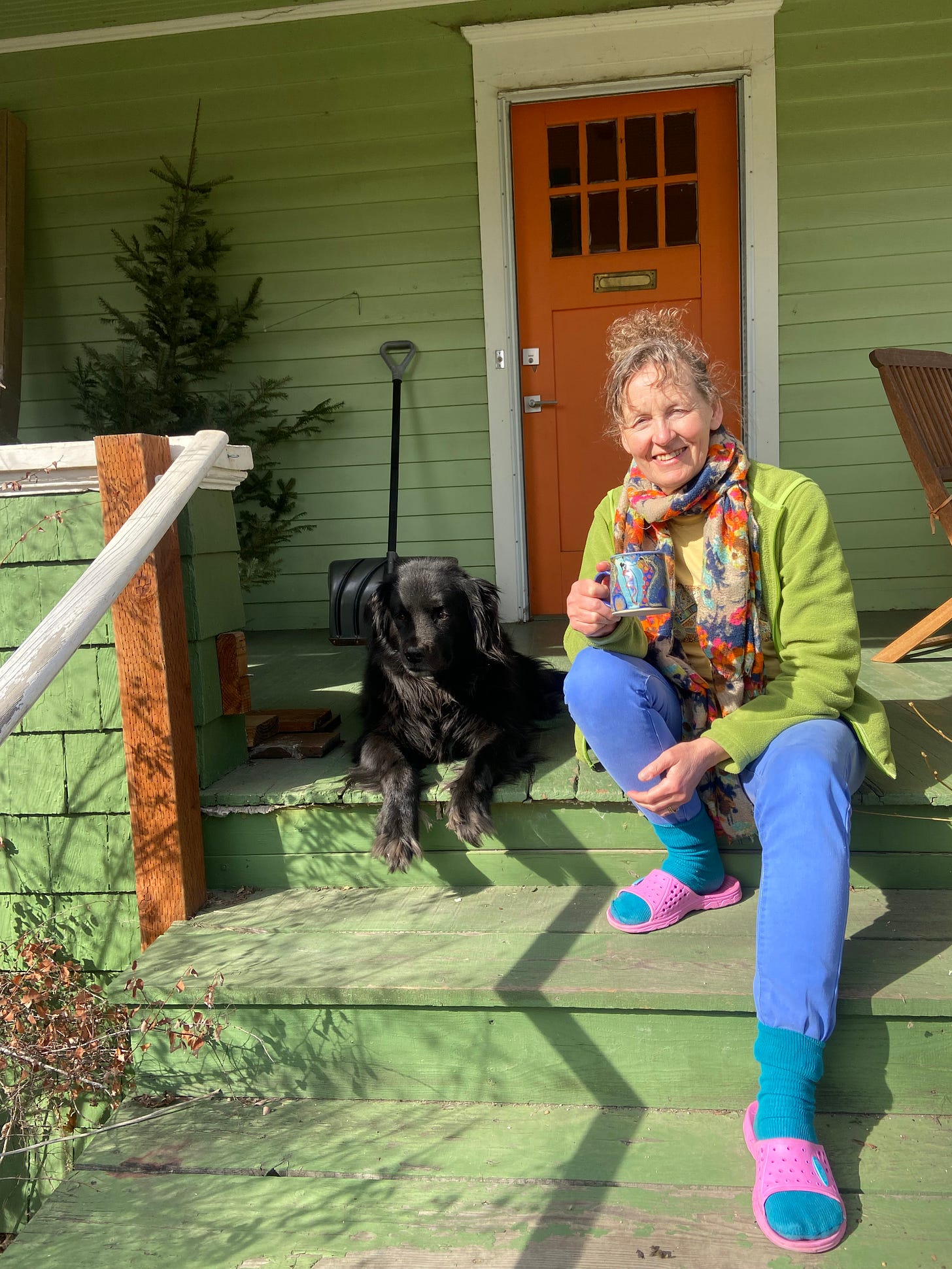In Memoriam: Reflecting on the life of Camilla Carr
We are heartbroken that Camilla Carr, one of our storytellers, and a beloved member of The Forgiveness Project family, has died after many years of struggling with cancer. Below, our Founder, Marina Cantacuzino, gives her reflections on a life lived with immense courage and humanity.
“When I first met Camilla Carr and her partner Jon James, it was five years after their release from captivity. For 14 months they had been held hostage by Chechnyan rebels and what intrigued me was that, while the emotional scars were still obvious, already Camilla was starting to talk about forgiveness. Forgiving her captors, she explained, was the only way she could bring healing to a trauma that had come to define her life. After a few hours of warm but intense conversation, we took a short walk up into the Welsh hills behind the tiny cottage they then rented where the photographer took a picture that still today so perfectly expresses Camilla’s sense of joy, gentleness and colour. She later married Jon and they moved to Devon. Their devotion to each other cemented through their shared trauma.
Their story featured in the original F Word exhibition which went on display at the Oxo Gallery in 2004, after which Camilla became involved in the work of The Forgiveness Project, telling her story as part of our RESTORE prison programme alongside a former offender. At the same time, Camilla was being asked to train journalists in survival techniques for hostage scenarios - work which she continued right until her final months. She also frequently spoke in schools and institutions telling her story and offering survival strategies to anyone working in a stressful environment. A real testament to the power of her spirit is evident in The Sky is Always There, a powerfully redemptive book written by Camilla and Jon about captivity and survival, published in 2008.
Whenever Camilla shared her story as part of RESTORE she would tell prisoners of her appalling ordeal as a hostage but the focus of the talk was always on how she managed to deal with the encroaching residue of trauma. She would explain: ‘First you have to deal with anger, then with tears, and only once you reach the tears are you on the road to finding peace of mind.’
Through working in prisons she claimed to have seen ‘the light of understanding being switched on in many men,’ giving them the growing confidence that they could change. The key to this she wrote to me once was that the prisoners would, ‘come face-to-with an ex-offender who has had the power and strength to change and also with a victim/survivor who is prepared to speak the unspeakable. A huge amount of trust and respect is engendered which enables the men to be honest and open themselves and therefore contemplate making new choices, new decisions for their future.’
Camilla had the courage to share what was an intensely personal and painful experience. Her story touched the lives of others, her openness lending some of her strength to those who heard her speak. In 2011, I asked all of those who shared their lived experience in prisons to give us some feedback. Camilla’s response was heartening. She wrote: ‘Having been held captive for 14 months in Chechnya and suffering rape and mental torture, I have an understanding of the ignorance that leads to violent and abusive acts and also (in my case) the effects of a violent and bloody war on the psyches of the men who held us. Of all the men and women in prison a very high percentage have suffered some abuse in their past that has led them into self-medicating drug and alcohol abuse, inevitably leading to violent and anti-social behaviour. Through telling my story they understand the ripple effects of their past actions and also feel able to address their own trauma. For me, the response my story elicits from the men listening puts meaning into my life.’
Camilla loved working with the RESTORE team who she found ‘passionate and committed’, confessing that the opportunities The Forgiveness Project gave her had opened her up, ‘both in terms of giving and receiving – to love, compassion, forgiveness and a sense of humbleness.’
An American woman, who came across Camilla’s story and her work with The Forgiveness Project in the National Geographic, wrote in awe of what she had read, telling Camilla: ‘I am a survivor of child abuse, and know all too well how hard this road is to walk, and how many years it takes to truly find oneself in a place of true healing. I am not completely there yet, but when I hear of stories such as yours, I find new hope and inspiration.’
Camilla would share with me these responses because she knew it would help The Forgiveness Project explain its impact better, as well as better understand how restorative narratives could shine a light into the darkest of places, illuminating a path through for those who needed a lifeline.
She was a beautiful soul, down-to-earth, tender, brave, often funny and deeply compassionate. She would always take herself into nature or silence to replenish when things got tough. When browsing through our former correspondence I was struck by one particular short email which speaks of her love of the natural world along with her intrinsic desire to help others.
Camilla wrote: “Oh to sniff mountain air and rock lichen! I spent yesterday with friends near Hay-on-Wye basking in sunlight and absorbing the intense greens and red browns of the rolling fields, listening to birdsong and chainsaws. Better get back now to serving teas and coffees in the village hall....keeps me grounded!”




